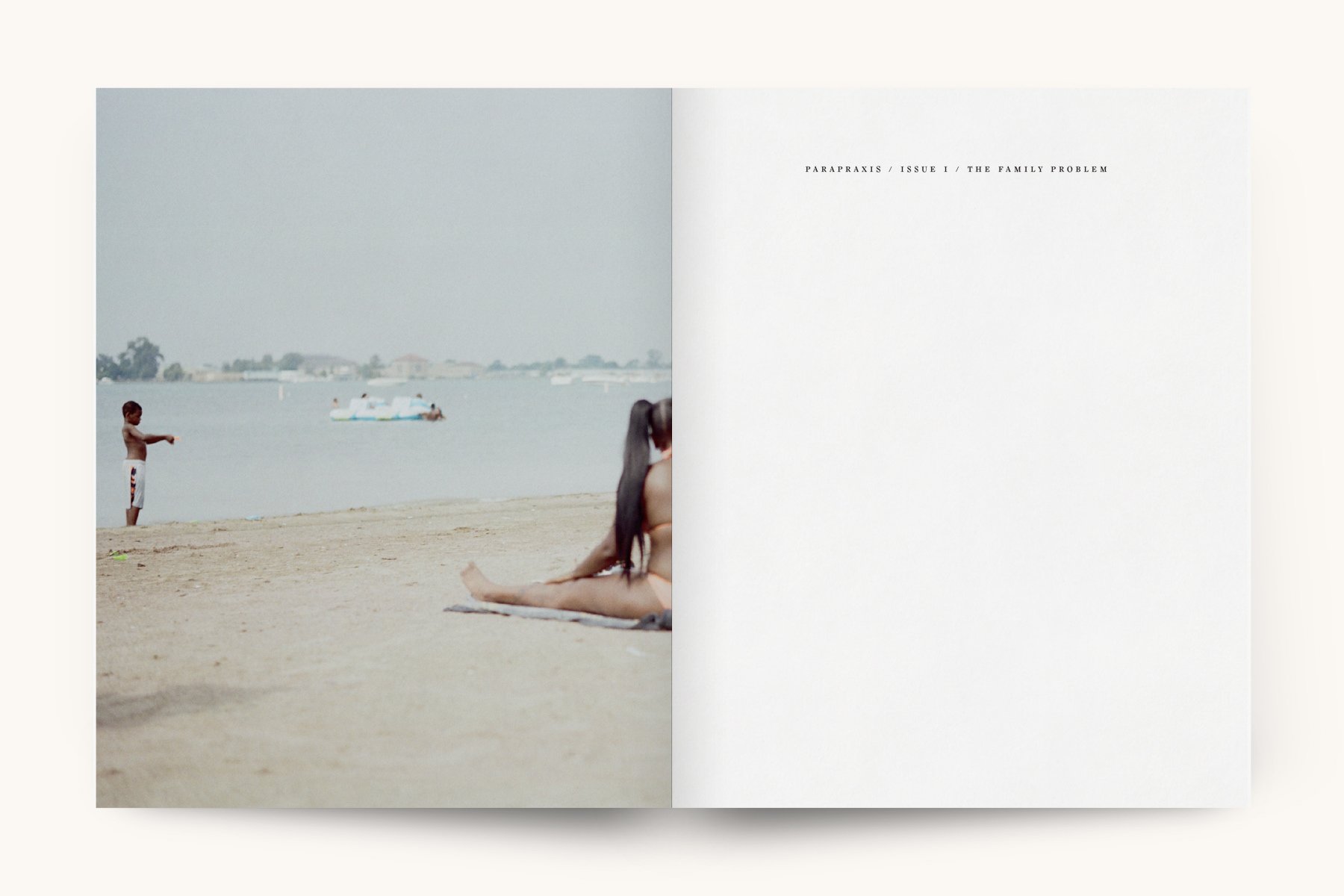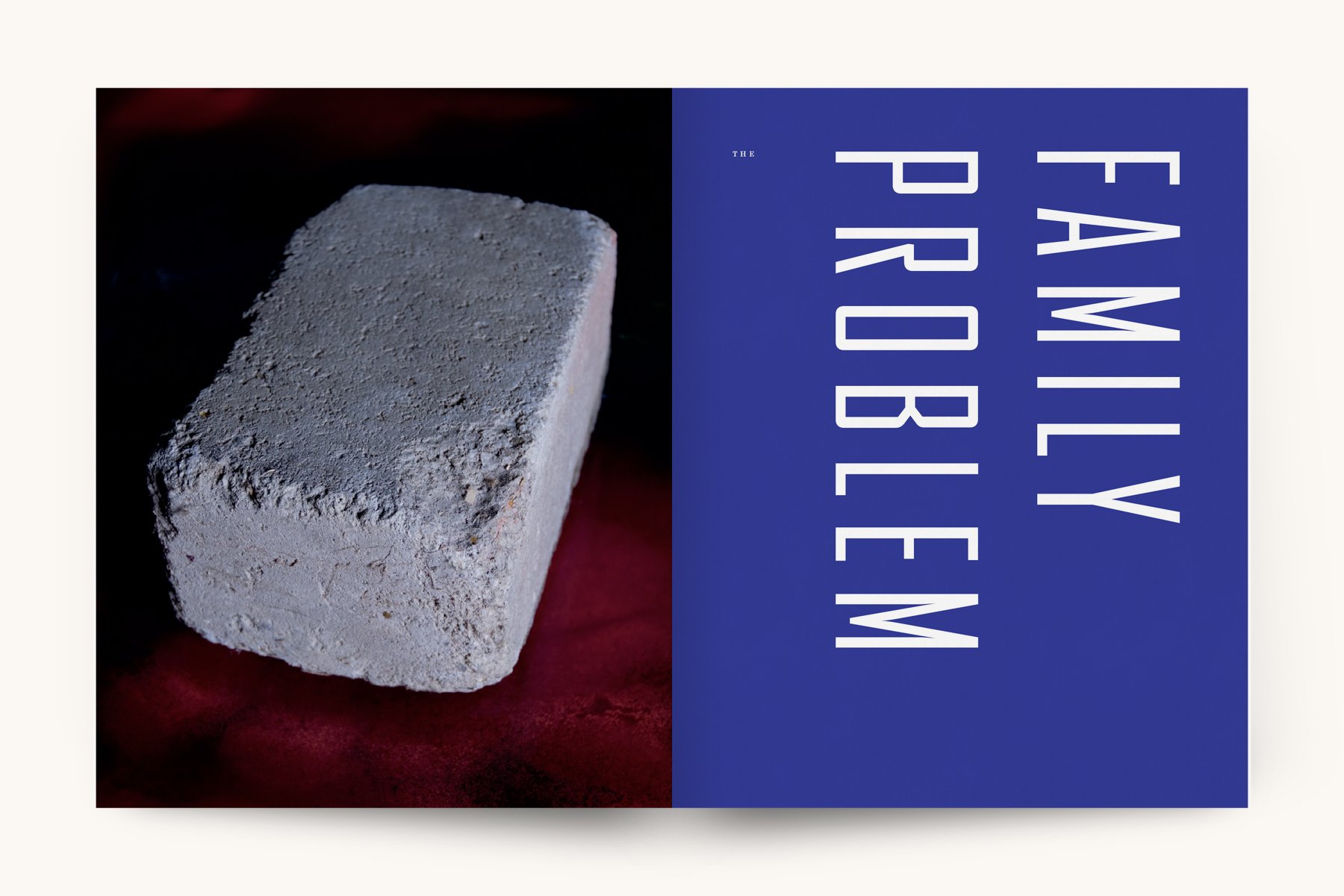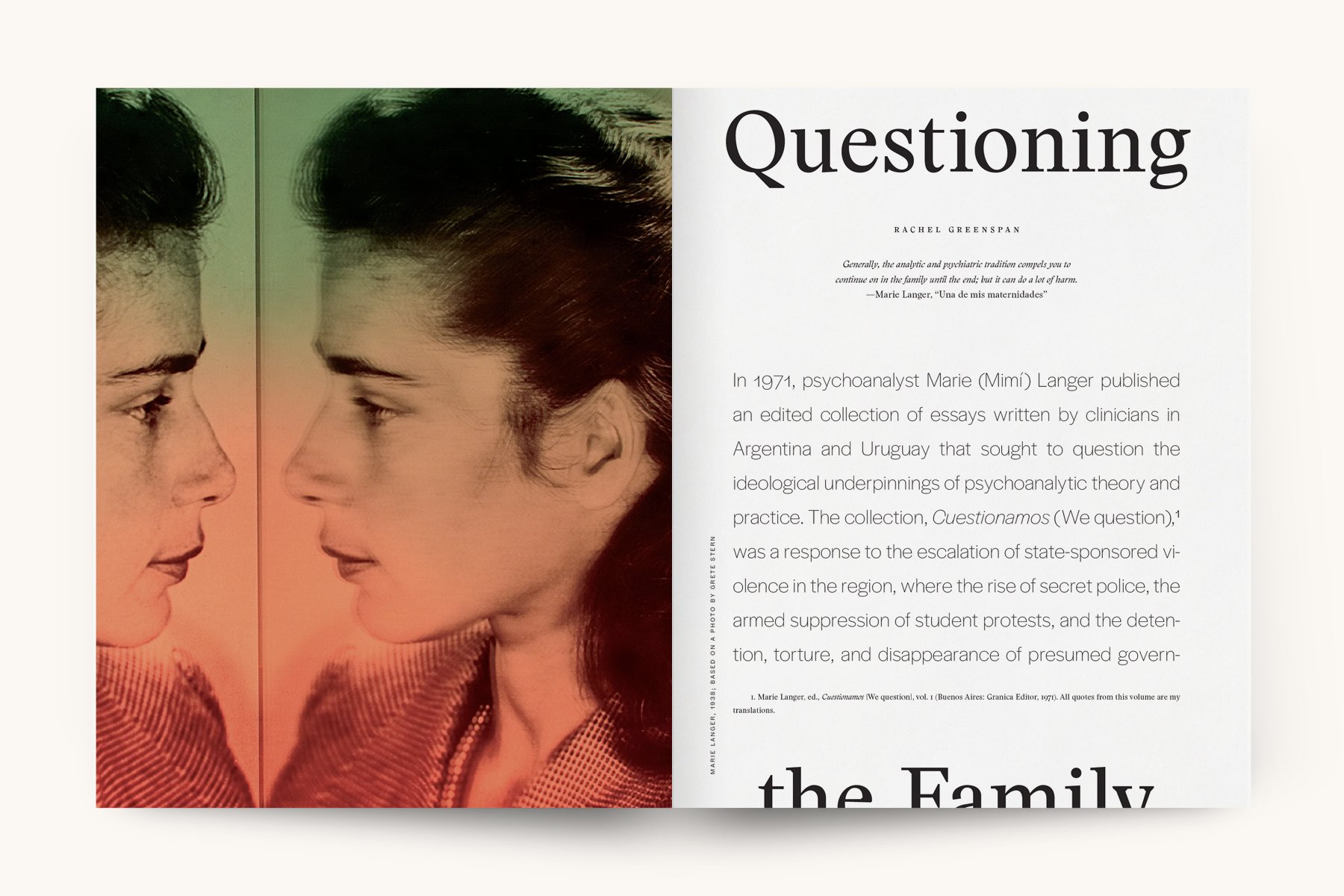 Image 1 of 1
Image 1 of 1


Parapraxis Issue 02: Repair
Psychoanalysis, like the world, is in disrepair. Yet it has staked its cure on the possibility of reparation. Still, repair implies that we know what has gone wrong—what is bad or what is good—and once that knowledge is ventured, things, people, and the world split. The possibility of repair suggests that we might recover—that we know what we’ve lost, can locate what’s been taken, and can set about making a new whole or returning to the old. Yet, in the wake of ongoing white supremacy and colonial dispossession and subjugation, the class divide that composes and decomposes strife, and the petrifying distinctions that segregate across race and gender, the world seems irreparably riven.
In this issue we descend into the butcher’s butchered world, inside and out, to see what damage has been wrought and in whose name. The haunting of remains. Boundary and boundary violation. Feeling down and out in Berlin. The challenges of a global red clinic. Wherefore Fanon. Watching courts. Irreparable communing through ordinary psychosis. The nation, belonging, the state. An interview with Denise Da Silva. Essays by Jasmine Sanders, McKenzie Wark, Wayne Wapeemukwa, Francisco González, and more.
Repair is not an event, but an ongoing demand, one that is impossible to satisfy and impossible to avoid.
Psychoanalysis, like the world, is in disrepair. Yet it has staked its cure on the possibility of reparation. Still, repair implies that we know what has gone wrong—what is bad or what is good—and once that knowledge is ventured, things, people, and the world split. The possibility of repair suggests that we might recover—that we know what we’ve lost, can locate what’s been taken, and can set about making a new whole or returning to the old. Yet, in the wake of ongoing white supremacy and colonial dispossession and subjugation, the class divide that composes and decomposes strife, and the petrifying distinctions that segregate across race and gender, the world seems irreparably riven.
In this issue we descend into the butcher’s butchered world, inside and out, to see what damage has been wrought and in whose name. The haunting of remains. Boundary and boundary violation. Feeling down and out in Berlin. The challenges of a global red clinic. Wherefore Fanon. Watching courts. Irreparable communing through ordinary psychosis. The nation, belonging, the state. An interview with Denise Da Silva. Essays by Jasmine Sanders, McKenzie Wark, Wayne Wapeemukwa, Francisco González, and more.
Repair is not an event, but an ongoing demand, one that is impossible to satisfy and impossible to avoid.









